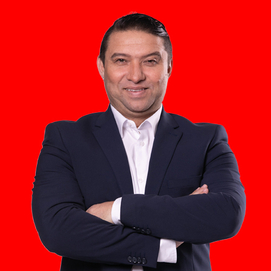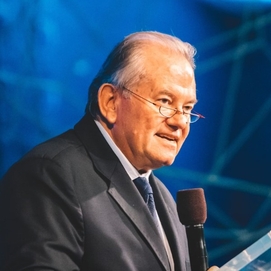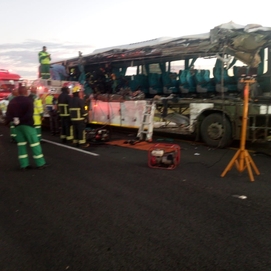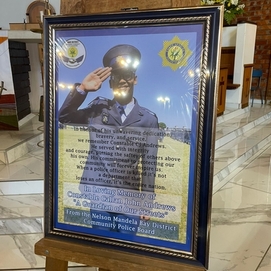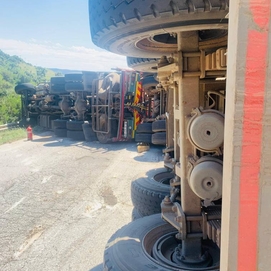Voters in Mozambique will cast their ballots Wednesday to elect a new president and parliament, with the Frelimo party that has been ruling for 49 years expected to hold on to power.
Outgoing President Filipe Nyusi, 65, who steps down after a two-term limit, was among the first people to vote as polling stations opened at 7:00 am (0500 GMT).
If the party wins the vote, he will be replaced by Frelimo's relatively unknown candidate, 47-year-old Daniel Chapo.
Voters are also electing provincial governors in the impoverished Indian Ocean country, with 17 million registered to vote and results expected in about two weeks.
Among the voters who turned up early to cast her ballot was Leta Decastro, 43, who said she was excited to choose a new president.
"I know who I will choose. We need a change, we need things to work," she told AFP.
"I want the parliament to change," said forest engineer Gisela Guambe, 42. "There is not enough debate in parliament now. The opposition needs a different presence."
Chapo, a provincial governor, was the surprise choice of candidate for Frelimo, the socialist party that has held power since independence from Portugal in 1975.
His election would mark a generational change: he would be the first Mozambican president born after independence and the first not to have fought in the devastating 1975-1992 war between Frelimo and the main opposition party Renamo.
Chapo's main competition includes Ossufo Momade, 63, an MP and Renamo leader.
Another contender is 50-year-old Venancio Mondlane, who lost a mayoral race in 2023 under Renamo's banner and claimed widespread electoral fraud.
The charismatic Mondlane, popular among young voters, quit the party in June and joined forces with the smaller Optimistic Party for the Development of Mozambique (Podemos).
The other main candidate is Lutero Simango, 64, president of the centre-right Mozambique Democratic Movement and an outspoken critic of Frelimo, whose leaders he describes as "thieves dressed in red", the party's colour.
- Fears of manipulation -
Analysts have voiced concerns about the integrity of the election process after claims of widespread manipulation in previous votes.
In 2019, opposition parties disputed the results that gave Frelimo 73 percent, denouncing what they said was electoral fraud.
After municipal elections in 2023 were seen as fraudulent, protests erupted in major cities in which police "accidentally" killed several people.
"Nothing is going to change," said Domingos Do Rosario, a political science lecturer at Maputo's Eduardo Mondlane University, pointing to weak institutions and rife political bargaining.
The electoral commission "is a joke", he said. "It manufactures voters," he added, expressing doubt over the body's claim to have registered 17 million voters from a largely young population of 33 million.
"The integrity of the electoral process is a serious problem," said researcher Borges Nhamirre from Pretoria's Institute for Security Studies.
- Poverty, violence -
Addressing one of the major concerns of Mozambique today, Chapo told his last campaign rally on Sunday that Frelimo was determined to end the jihadist attacks that have plagued gas-rich Cabo Delgado province since 2017.
"We will continue to work so Mozambique stays a country of peace, including in Cabo Delgado," he said. "We want to continue fighting against terrorism."
According to the African Development Bank, 74.5 percent of the population of the Indian Ocean country, battered by cyclones and drought, lived in poverty in 2023.
© Agence France-Presse

